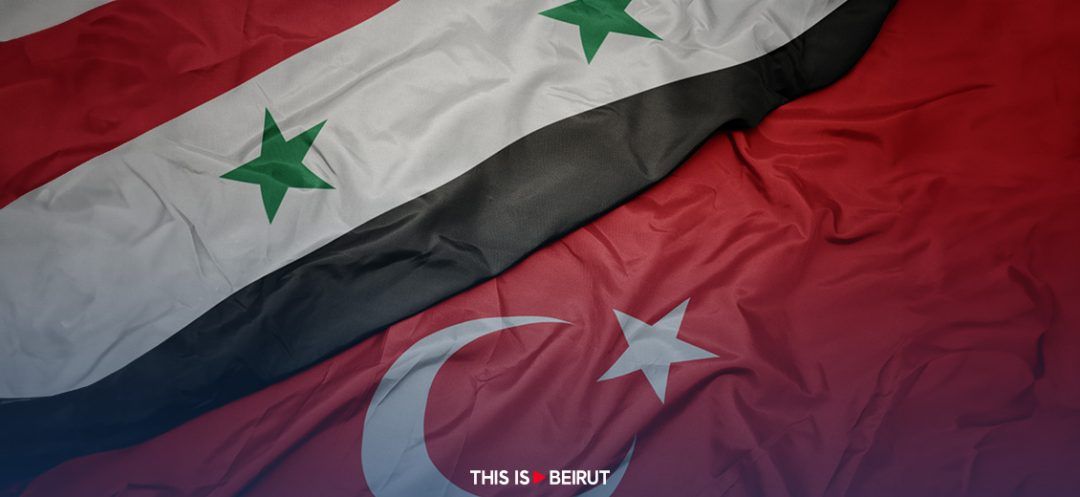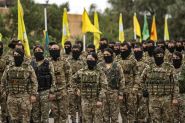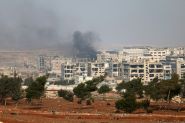- Home
- Middle East
- Turkey-Syria: An Unresolved Love Story!

In recent decades, the fluctuating Turkish-Syrian relations served as a poignant reminder that in politics, there are no permanent enemies or friends, only ever-changing calculations and interests. However, the extent to which these calculations align with the people’s best interests requires a deeper examination, as the population and the innocent ones end up bearing the enduring costs.
However, irrespective of these fluctuating relations, it is crucial to address the issue of the Iskenderun province, which Syria claims as its own but is currently under Turkish occupation. Yet, it is seldom mentioned in Syria's political discourse or official positions. Instead, there has been a noticeable near-total disregard for this matter, exceeding even the indifference surrounding the Golan Heights, occupied by Israel since 1967, where no efforts towards its liberation have been initiated ever since.
The dormant status related to the issue of the Iskenderun province preceded the decline in bilateral relations between the two countries, which worsened with the onset of the 2011 Syrian revolution. The conflict's militarization and the regime's reluctance to implement crucial political reforms escalated into a full-fledged civil war. These reforms could have potentially alleviated much of the Arab nation’s suffering, which swiftly lost its political influence and regional standing within a short timeframe. Despite these challenges, there was a noticeable increase in economic and trade ties between the two countries.
Currently, the Turkish military exerts control over extensive territories in northern Syria, citing perceived threats from Kurdish organizations. This mirrors their strategy in northern Iraq, effectively encroaching on what is traditionally deemed as Kurdish territory. Turkish airstrikes in northern Syria indiscriminately target broad areas, including civilian infrastructure such as oil refineries and power stations, extending their reach to areas like Raqqa, Idlib and Aleppo. Unfortunately, these violations frequently occur without military retaliation, much like the frequent Israeli airstrikes on various sites within Syria, occurring almost daily or weekly.
Moscow has recently taken substantial political steps to improve relations between Ankara and Damascus, especially by facilitating a meeting between the defense ministers of both countries. Tehran is actively engaged in these diplomatic efforts, seeking to navigate the delicate balance amidst ongoing and successive targeting of Iranian leaders and advisors in Syria, by the US and Israel. It seems that Russia has, to some extent, turned a blind eye to these maneuvers.
As the efforts to normalize Syrian-Turkish relations persevere, they have not yet culminated in a summit between Syrian President Bashar al-Assad and Turkish President Recep Tayyip Erdoğan, despite Damascus successfully overcoming the imposed Arab isolation, and consecutively hosting officials from Gulf Cooperation Council countries. Furthermore, the recent reconciliation between Egypt and Turkey proves that nothing is impossible in politics.
A challenging and lengthy path lies ahead for the achievement of a Turkish-Syrian "reconciliation," especially in light of significant regional developments. This includes the ongoing Israeli conflict in Gaza, which has persisted for almost five months; Israel’s persistence to achieve seemingly unattainable goals continues to hinder its resolution.
This conflict may have contributed to "slowing down" the Syrian-Turkish normalization process without completely derailing it. However, it is widely acknowledged that the situation in Syria is exceptionally intricate due to the country's multiple occupations, American sanctions and significant economic challenges, alongside the crises faced by millions of displaced persons both within and beyond its borders. Additionally, the refugee issue weighs heavily on the relations between the two countries due to its sensitivity and significance.
While the regional scenario keeps unfolding, the future of the Turkish-Syrian dossier will remain unpredictable, as the dynamics are constantly shifting and modifying.
Read more




Comments